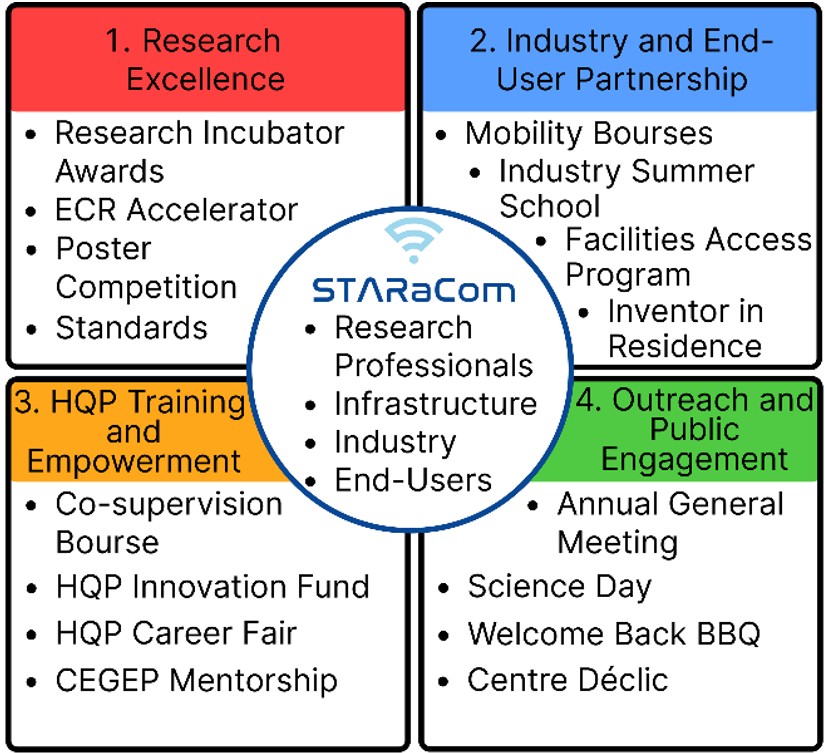Headquartered at McGill University, STARaCom is structured as a multi-university Regroupement stratégique with 11 institutional partners (Concordia, Ecole de Technologie Supérieure, INRS-EMT, Ecole Polytechnique de Montreal, Laval, UQAM, UQAR, UQAT, UQO and Vanier College).
STARaCom is currently governed by the Board of Directors (BoD), chaired by Prof. Boulet (McGill, Associate VP, Innovation and Partnerships). The BoD includes 1 representative from each partner university research office, Director Plant (Tier 1 CRC) and Co-Director Karabulut-Kurt (Tier 1 CRC), 1 HQP representative, 1 industry representative, and 1 public-sector representative. The Director and Co-Director report to the BoD. Daily operations are overseen by the coordinator.

STARaCom programming, outlined in this figure, is delivered through 4 portfolios, each managed by a Lead and overseen by a portfolio committee with the following profiles:
1) The Research Excellence Committee, led by Ajib (UQAM; Axis 2 lead; CA representative), includes the remaining 4 axis leaders (Tayeb, Coutinho, Moha, Coates) and 1 HQP.
2) The Industry and End-User Partnerships Committee, led by Nabki (ÉTS), includes 2 STARaCom Professors, 2 Québec based industry thought leaders, and 1 HQP.
3) The HQP Training and Empowerment Committee, co-led by Djerafi (INRS) and PhD candidate Shahriari (McGill; the CA representative), includes 2 STARaCom Professors, and 2 HQP.
4) The Outreach and Public Engagement Committee, led by Boutayeb (UQO), includes 1 STARaCom Professor, 1 public sector official, and 1 HQP.
Plant and Karabulut-Kurt provide cross-portfolio oversight. Each portfolio operates with a defined mandate, a dedicated budget, and annual performance.